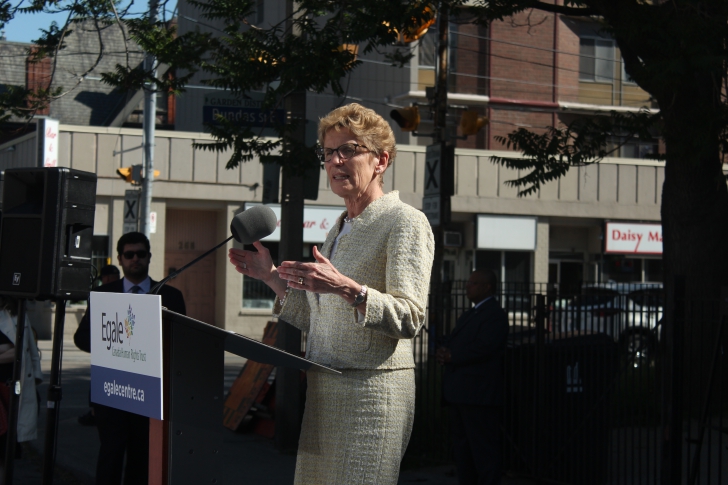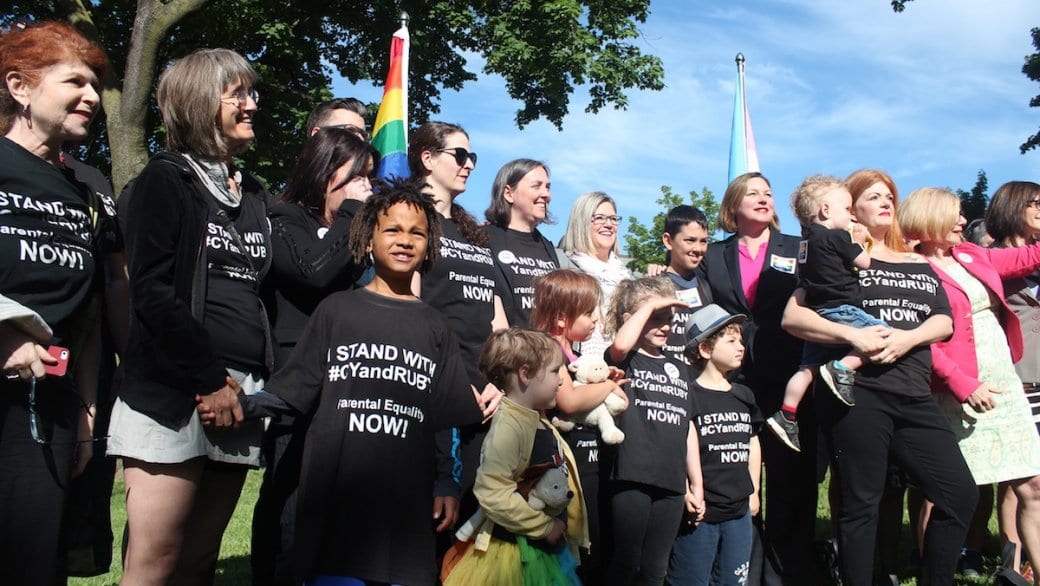Queer and trans families in Ontario are finally on track to be treated as equal under the law.
After a year of legislative wrangling, protests and a lawsuit, the Ontario government has tabled a bill that will change the laws that force many queer and trans parents to adopt their own children.
The All Families Are Equal Act, which was introduced by Attorney General Yasir Naqvi, will recognize queer and trans people as legal parents to their children and allow more than two people to be recognized as parents.
The bill is modelled on Cy and Ruby’s Act, a private member’s bill brought forward by NDP MPP Cheri DiNovo last year. The bill passed second reading but was never brought to committee by the government.
“They should have done this a long time ago,” DiNovo told Daily Xtra, “but now that it’s done, we still need to celebrate it.”
Jennifer Mathers-McHenry, who along with her wife Kirsti, was the driving force behind DiNovo’s bill, says she’s pleased to see the government act.
“I’m really happy with this bill,” she says. “We made a lot of progress over the summer and really everybody is on the same page.”

Despite a few necessary tweaks, Mathers-McHenry, who was consulted on the bill, believes the new legislation will give queer and trans families the equal recognition they deserve.
“The goal for everyone who has a hand in drafting this legislation is to ensure that it makes things smooth for families and ensures that we’re not creating a hierarchy of types of parents,” she says.
The new legislation goes further than Cy and Ruby’s Act on some issues such as surrogacy and posthumous conception. But beyond that, DiNovo says that it achieves much of what her bill set out to do.
“It’s good and looking forward to getting it done by Christmas so that babies born can be born equal,” she says.
Earlier this year, Premier Kathleen Wynne pledged to pass equal parenting legislation. But the government’s hand was also forced by a lawsuit brought by nine queer and trans families.
But the families won, and as part of the settlement, the government promised it would propose new legislation.
“The sad reality is the government fought these families in court,” says DiNovo. “It would have been nice to see them do it without the push from behind.”
Mathers-McHenry, who has been trying to get equal parenting legislation passed for two years, is glad that it’s finally happening.
“We’re so close I can smell the champagne from here,” she says. “But we’re not going to celebrate until we’re really done.”
One downside is that her children, Cy and Ruby, won’t have a law named after them. Are they upset?
“I’ll let you know when we break it to them,” she says.

 Why you can trust Xtra
Why you can trust Xtra


